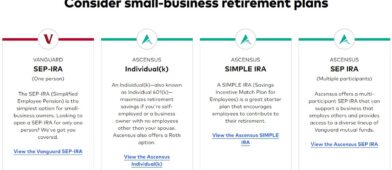If you’re like most people, your finances get more complicated with every passing year. That’s especially true if you’re a business owner or have built an extensive investment portfolio. Regardless of your situation, there comes a time when you may need to hire a financial advisor.
Unfortunately, plenty of people are out there claiming the title.
I recommend that you limit your search to fee-only financial advisors. They are more likely to put your financial interests ahead of their own since they don’t earn commissions from selling you products and services.
In this article, I show you how to find a fee-only financial advisor and explain why fee-only is necessary for most (not all) people.
Table of Contents
What Is a Fee-only Financial Advisor?
As the name implies, a fee-only financial advisor works on a fee basis. That is, the financial advisor is compensated based on a fixed fee rather than earning commissions from the sale of financial products or the performance of the investment portfolio.
A fee-only financial advisor reviews your overall financial situation and makes recommendations for you to act upon. They may or may not purchase specific investments or financial products. That will depend on the level of service you expect the advisor to provide.
The fee structure for fee-only financial advisors can take different forms. It may be a flat amount based on the expected service level, a straight hourly fee based on the number of hours the advisors dedicates to your work, or a fee amount determined by a percentage of your assets under management.
Some advisors will use all three formats to accommodate the widest range of clients, and you need to be able to make that distinction.
In this article, we are focusing on fee-only financial advisors. Those are advisors who work only on a stated fee structure.
What about “Fee-based” Advisors?
Fee-only means they are compensated based on their time.
Fee-based advisors are paid for their time AND can earn commissions on recommended investments and financial products. It’s a bit of sneaky wording here and while being paid a commission based on what you recommend is perfectly fine, the two names are not the same.
Be knowledgeable about which type of advisor you are working with.
Why You Should Work with a Fee-only Financial Advisor
The main advantage of working with a fee-only financial advisor, compared with one who is commission-based, is that it eliminates any conflicts of interest. It eliminates even the hint of conflict.
A financial advisor who works on commissions can benefit from “churning your account.”
That includes everything from making repeated trades in your investment portfolio to setting you up with certain financial products on which he or she earns a commission. That’s not to say that all advisors who earn commissions will do this, it’s that it’s possible.
A prominent example is specific insurance products on which the advisor will earn a commission from the issuing insurance company.
Since a fee-only advisor doesn’t earn a commission, there’s less of a bias. The use of fee-only compensation gives the advisor incentive to move you into investments or financial products that will benefit you, not generate revenue for the advisor.
Similarly, any financial advisor you choose to work with should be a fiduciary (see the explanation for this term under How to Research Fee-only Financial Advisors below).
The lack of conflict of interest creates a second benefit, and that’s objectivity. As a fee-only advisor, the financial planner can provide an objective opinion of your financial situation and what moves and investments you need to make.
In a way, the fee-only arrangement effectively creates a clear alignment of priorities.
You’ll be able to request ongoing advice from the advisor without worrying he or she may steer you into financial products designed primarily to earn a commission.
Finally, the fee-only compensation structure creates transparency of cost. Unlike a commissioned financial advisor, where you can never know exactly what you will pay until the end of the year, a fee-only financial advisor gives you the advantage of knowing exactly what you will pay.
That alone can make the job of financial management easier.
Downsides to Working with a Fee-only Financial Advisor
As good as all that sounds, working with a fee-only financial advisor is not the best strategy for everyone. There are several downsides to be aware of.
Cost. If you have an investment portfolio of, say, $100,000, it may be cost prohibitive to pay an advisor $2,000 to manage it. In that situation, a commission-based financial advisor working with one of the major investment brokers may be the more cost-effective choice. Just be sure the advisor is not making an excessive number of trades within your account.
An AUM (“assets under management”) limit. Many financial advisors set a minimum investment account size for potential clients. $250,000 is a common minimum; some set the floor at $500,000 or even $1 million. If your portfolio is smaller, a fee-only financial advisor may not work with you. While this is less likely with a fee only advisor, it’s still possible.
You might pay outside fees. A fee-only financial advisor charges only for the services he or she provides. If, for example, the financial advisor recommends taking a large life insurance policy, you may need to purchase that through an insurance agent. That will involve paying a fee to the agent (paid through your premium for several years).
A financial planner may also bring in outside services involving additional fees. This can include attorneys, accountants, and actuaries, who will have their fees.
The competence factor. Though an advisor may be listed as a financial advisor, it’s not a guarantee of their skill or ability. The advisor may have limited experience or work specifically with clients in a certain income or asset range or even occupational specializations. This is true of any advisor though.
How Much Should You Pay for a Fee-only Financial Advisor?
How much you should pay for a fee-only financial advisor will depend on a combination of factors, including:
- The size and complexity of your financial situation.
- Your geographic location – these are typically higher in larger cities than in small towns.
- The education, experience, and reputation of the financial advisor.
- Which specific fee structure will be used – a flat amount, an hourly charge, or a percentage of your total assets under management?
- The amount of planning and number of services involved.
The most basic service financial advisors provide is designing a comprehensive financial plan. A financial planner will typically charge a flat fee for this service. But that fee can be anywhere from $1,000 to several thousand dollars, depending on the size and complexity of your financial situation and your future financial goals.
If the financial planner charges hourly, the fee can range between $150 and $400 per hour.
If the fee structure is based on the percentage of assets under management, these can range from 1% to 1.5% of your portfolio value. For example, if your investment portfolio is worth $500,000, expect to pay the advisor between $5,000 and $7,500 per year.
Additional Fees
You should also be aware that the financial advisor will likely charge additional fees for unscheduled projects.
For example, if you agree to pay a financial advisor $5,000 to provide investment management and retirement planning, the advisor may charge an additional $1,500 if you request estate planning.
In deciding how much you should pay a fee-only financial advisor, decide exactly what services you want him or her to provide. You should then be provided with an estimate of the advisor’s cost of providing those services.
With that information in hand, evaluate if the fee you will pay to the financial advisor will justify the expected outcome. And as is always the case with using any professional, you should check between at least three or four providers before deciding on the best choice for you.
How to Research Fee-only Financial Advisors
Start the process by searching the National Association of Personal Financial Advisors (NAPFA). It’s a database of fee-only, fiduciary financial advisors nationwide. By entering your ZIP Code, you’ll have access to qualified personal financial planners in your area.
When I entered my ZIP Code, I found eight qualified financial planners within 10 miles of my home. You’ll be provided with a list of advisors in your area, which you can narrow down by reviewing the qualifications of each and visiting their respective websites.
Alternatively, you can use a site like WiserAdvisor to look up and research advisors. WiserAdvisor is a directory of vetted financial advisors and you can use their tools to help you match with one of them – you can learn more about the platform in our WiseAdvisor review.
In evaluating which advisors you want to work with, look for professional designations. One of the most common is Certified Financial Planner, or CFP. To earn the designation, financial planners must have a bachelor’s degree and take specific coursework. They’re then required to pass an examination to receive their certification.
No matter what type of fee structure a financial advisor uses, be sure to select one who acts as a fiduciary. The fiduciary advisor is one who, by law, must manage your finances for your benefit and not for his or her own. It’s important to understand that not all fee-only financial advisors are fiduciaries. That’s why it’s critical to research this issue with any advisor you’re considering and select only those registered as fiduciaries.
Finally, do your best to narrow your list down to the financial planners most likely to meet your own needs. You can often determine this by reviewing the advisor’s website, but you may also need to make a phone call to get more specific information.
Ensure the advisor regularly works with others with your financial profile and wealth level. Also, make sure he or she offers the number of services you’ll be needing, whether that includes investment management, estate planning, retirement planning, or tax planning, as examples.
Interview Several Advisors
Much like when you get a quote for work on your home, you’ll want to meet with several financial advisors to establish whether they’re a good fit for you and your finances.
It’s more than just finding out whether you “like” them or not. You want to work with someone that you’re able to build a rapport with but also someone who you feel is competent. By speaking with several advisors, you’ll get a better sense of who is a better fit for you.
Not All Financial Advisors are Equal
This is yet another mission-critical task in finding the right financial advisor. Unfortunately, “financial advisor” is a loose professional term. Virtually anyone who works in any financial capacity can use the title.
As an example, I worked for a mortgage broker for several years. When I started with the company, I asked what title I should give myself on my business cards. The answer: anything you want!
I could have put “financial advisor” on the card and called it a day. But I didn’t see my job as broad and used something much more limited. However, not everyone is that hesitant, and a financial advisor (or financial planner) is one of the most overworked designations in finance.
Beware of insurance agents posing as financial advisors!
Some financial advisors are insurance agents. Since they work for a specific insurance company, the answer to your financial needs will always be a product offered by that insurance company.
It won’t matter if it’s actual insurance or investment; you’ll be placed in a plan from the insurance agent/financial advisor’s employer. The agent will be compensated based on the number, type, and size of insurance-related products he or she can sell you.
Insurance agents aren’t the only people using the financial advisor title. Others include investment brokers, real estate agents, loan brokers, bankers, and anyone with a financial product or service to sell.
Be careful with these “advisors” because they specialize in a single financial product or service. They are not qualified to provide across-the-board advice on your financial life. And it should go without saying that most work on commission, which is the exact opposite of a fee-only arrangement.
Final Thoughts
Unfortunately, we live in a world where just about anyone with a business card can call themselves a financial advisor. But financial advisors come in all shapes and sizes and with all types of compensation arrangements – often ones that are counter to your best interests.
That’s why you need to concentrate your search on fee-only financial advisors, specifically those who are fiduciaries and whose expertise matches your financial profile and personal needs and preferences.
By following the steps in this guide, you should be able to find the right person for the job. Make a serious effort because this is an area where choosing the wrong person could cost you many thousands of dollars. But choose the right person, and you could have a best friend in pursuing financial independence.




Hi Jim: Thank you again for the great read. You write such good, informative ideas- many that I had never heard of. In the past I have had 2 financial Advisors. Steinberg charged me to be Custodian of my Muni-bonds–in other words there were no calls or maturities and he charged me1.5% on all of the bonds. The Common and Preferred stocks, the charge was the same although He never suggested or changed anything in my stock account. Ken Fisher, however never got my Munis so there was no fee as he would have sold them. The stocks in my… Read more »